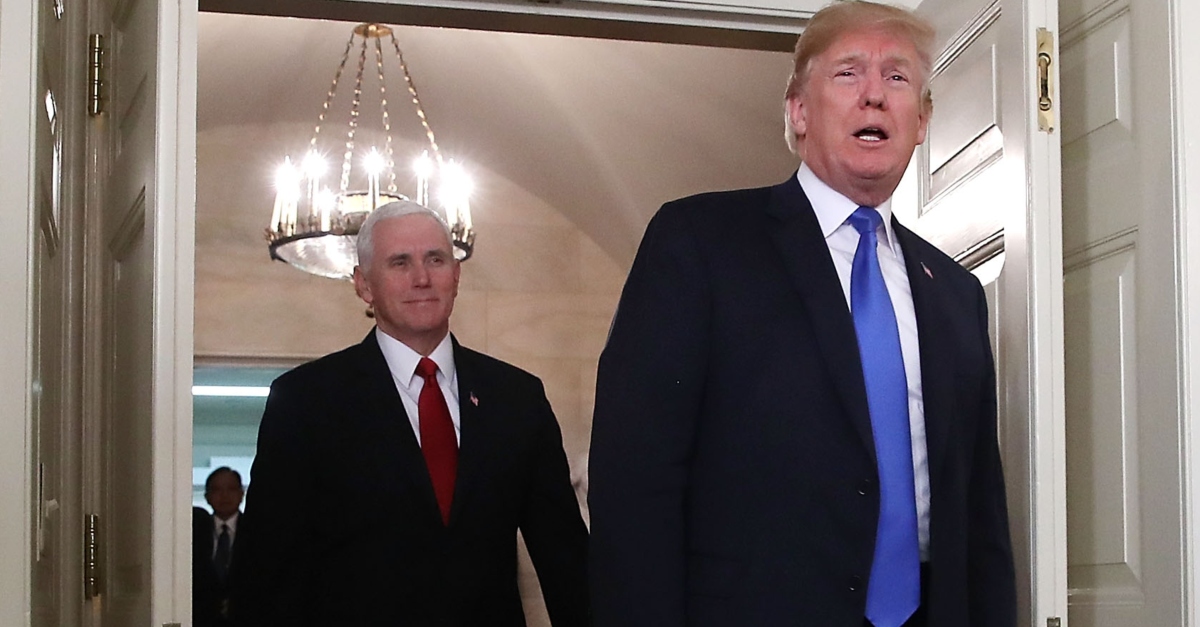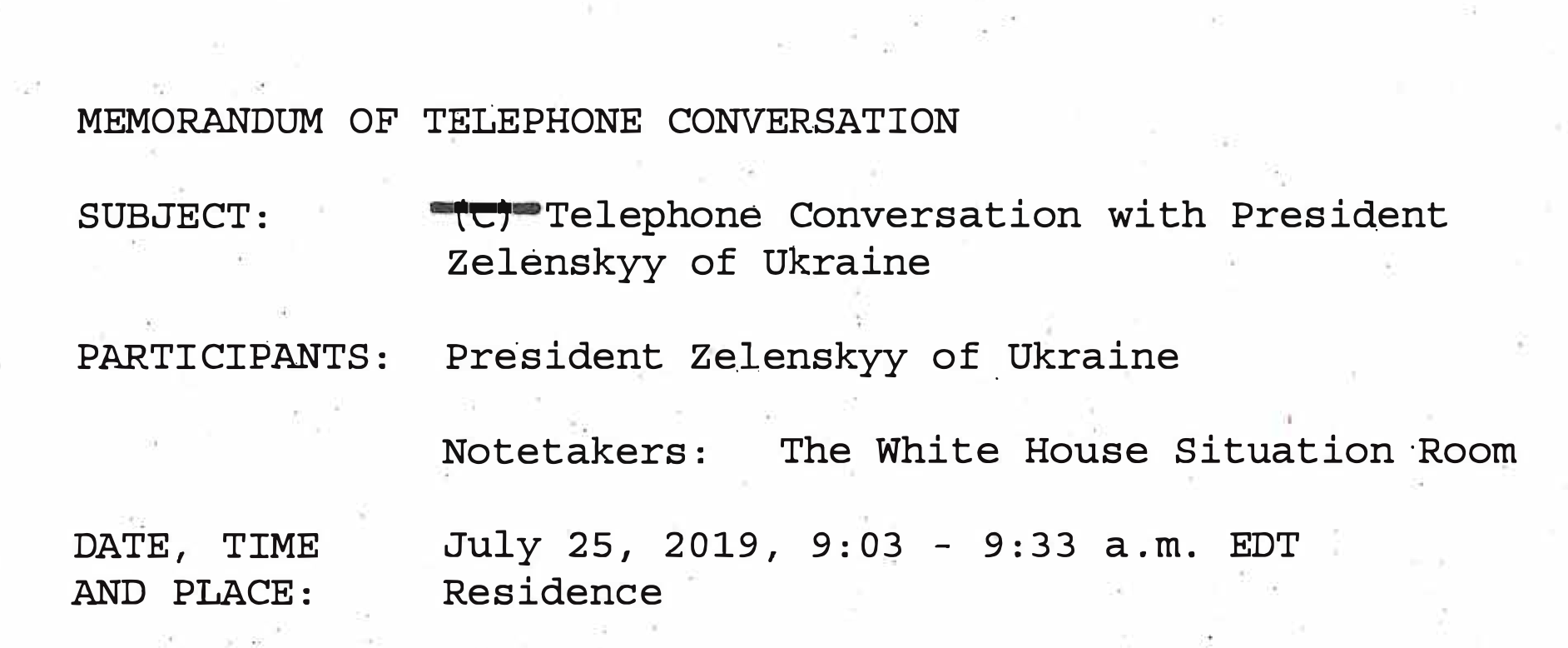
Vice President Mike Pence appears to be leading the charge on the “read the transcript” refrain you may have seen President Donald Trump himself voice on his Twitter account. Pence reportedly endorsed sticking to the “read the transcript” strategy during a Tuesday lunch with Republican U.S. Senators. This signals that Republicans will be telling reporters and urging the public to read a “transcript” of the July 25 Trump-Zelensky call that is actually a non-verbatim memo — all while ignoring transcripts of witness testimony that took place behind closed doors in the impeachment inquiry.
No matter how many exclamation points you put after the word “Transcript!!!”, the inescapable reality of the situation is that we’re actually talking about memo. How do we know this? Read the first page of the memo and see what it says.
Memorandum of telephone conversation

A memorandum of a telephone conversation is not a verbatim transcript of a discussion.

This matters for a few key reasons.
1) This memo is being called a transcript (i.e. verbatim account) to suggest that one does not need to read anything more than that document to be informed about what really happened with Trump, Ukraine, and a quid pro quo.
2) This “read the transcript” strategy is working.
3) The “read the transcript” strategy is being deployed to justify ignoring all other evidence — even though one witness has already testified that he had concerns about the non-verbatim memo, and even though another witness confirmed the quid pro quo element that “read the transcript” purports to debunk.
The prime — and perhaps most egregious example — of willfully ignoring evidence came from Sen. Lindsey Graham (R-S.C.), the chairman of the Senate Judiciary Committee. Graham indicated on Tuesday that he has prejudged the entire process and would not read actual transcripts of either Gordon Sondland’s or Kurt Volker’s testimony.
As Law&Crime reported on this, Graham said he has “written off the whole process,” believing it to be a “bunch of B.S.” Asked if he would read the transcripts mentioned, Graham said “No,” which was notable because Sondland confirmed the quid pro quo element of L’Affaire Ukrainienne that Graham previously said wouldn’t be proven.
More comments from Graham:
On Sept. 25, Sen. Graham said, “If you’re looking for a circumstance where the President of the United States was threatening the Ukraine with cutting off aid unless they investigated his political opponent, you’d be very disappointed. That does not exist.”
On Nov. 5, Sondland said:
Also, I now do recall a conversation on September 1, 2019, in Warsaw with [Zelensky aide] Mr. [Andriy] Yermak. This brief pull-aside conversation followed the larger meeting involving Vice President [Mike] Pence and President Zelensky, in which President Zelensky had raised the issue of the suspension of U.S. aid to Ukraine directly with Vice President Pence. After that large meeting, I now recall speaking individually with Mr. Yermak, where I said that resumption of U.S. aid would likely not occur until Ukraine provided the public anti-corruption statement that we had been discussing for many weeks. I also recall some question as to whether the public statement could come from the newly appointed Ukrainian Prosecutor General, rather than from President Zelensky directly.
In short, Sondland, the Trump-appointed U.S. Ambassador to the EU, said that Ukraine was told what it would take to get the military aid that was withheld: a public announcement that Ukraine would pursue the investigations of the Bidens that Trump mentioned in the memo of the July 25 call.
Reading testimony other than Sondland’s and Volker’s also hasn’t been a priority for Republican senators, per Politico:
Not a single Senate Republican interviewed Tuesday about the depositions said he or she had thoroughly read the two transcripts released on Monday containing House Intelligence Committee interviews with former U.S. ambassador to Ukraine Marie Yovanovitch and former top State Department official Michael McKinley. Those transcripts were lengthy at nearly 500 pages combined, but they were made public on a day the Senate was out of session, ostensibly giving senators time to read.
Lindsey Graham hasn’t been the only Republican senator to write off additional evidence. Sen. Mike Braun (R-Ind.), a lawmaker from VP Pence’s home state, for instance, also articulated a version of “read the transcript” on Tuesday.
“There’s been several folks that have testified that they think that it was not only inappropriate but that there was a quid pro quo,” Braun said. “And I’m going to base it upon, not someone’s opinion, but what I actually see. So far that is the transcript for me.”
Recently, a Republican lawmaker in the House — a representative who had the opportunity to attend the closed-door hearings — also admitted he didn’t go and didn’t read transcripts of depositions.
[Image via Mark Wilson/Getty Images]